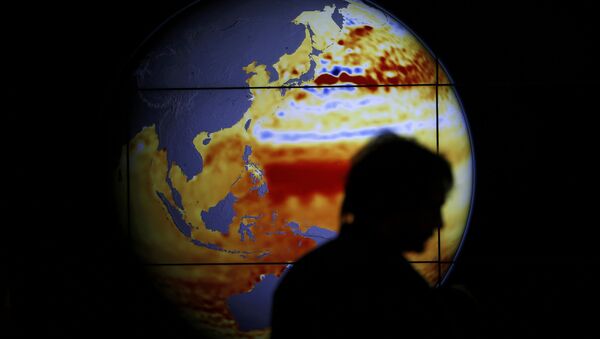Kristian Rouz — A new report from the US government claims that global warming could cost the US economy hundreds of billions of dollars by the year 2100. The report's release comes as Democrats in Congress plan to restore the so-called Climate Change Committee in an alleged attempt to ramp up pressure on Republican President Donald Trump.
The report released this past Friday was compiled by 13 government departments and agencies, including the Department of Agriculture and NASA. In the paper, titled the Fourth National Climate Assessment Volume II, officials claim that global warming and extreme weather conditions would affect most sectors of the US economy, ranging from infrastructure to healthcare.
READ MORE: 'There Is No Magic Wand' to Remove Atmospheric CO2 — Environmental Researcher
The paper — which was compiled at the request of Congress — gives a stark, albeit hardly apocalyptic, warning of the potentially disastrous effects that climate change could have on mankind.
"With continued growth in emissions at historic rates, annual losses in some economic sectors are projected to reach hundreds of billions of dollars by the end of the century — more than the current gross domestic product (GDP) of many US states," the report claims.
The report explicitly criticised the Trump administration agenda of expanding the use of fossil fuels in electricity generation. Trump has repeatedly touted 'clean coal' as the backbone of a self-sustainable and reliable US electric grid.
The paper claims that the growing use of fossil fuels is posed to negatively affect public health, contaminate water, disrupt infrastructure and erode the existing coastlines. The authors said all these changes would greatly affect the poor, as they are the most vulnerable social class.
Moreover, the report claimed that fossil fuels would eventually increase costs across the majority of industries, from farming, to fishing, to energy extraction.
The report also reiterated the officials' concerns regarding the 'greenhouse effect', the gradual warming of the Earth's atmosphere associated with the anthropogenic generation of carbon dioxide, methane, nitrous oxide and other so-called 'greenhouse gasses'.
"Future risks from climate change depend primarily on decisions made today," the report reads.
READ MORE: Activists Dissatisfied With UK Climate Policy Block Bridges in London (PHOTOS)
The authors of the paper emphasized their belief that ongoing climate change is happening due to human activity, unequivocally suggesting that mankind is gradually destroying the planet. The report stressed that human activity has caused droughts, storms, and flooding.
Shortly after the report's release, the White House dismissed the paper as inaccurate.
The paper is "largely based on the most extreme scenario, which contradicts long-established trends by assuming that… there would be limited technology and innovation, and a rapidly expanding population," White House spokeswoman Lindsay Walters said.
Ever since Trump took office, environmentalist groups have sounded alarms over the US government's stance on the issue of anthropogenic climate change. Since Trump dismissed the notion of global warming, the fate of multi-million-dollar government contracts and programmes has been up in the air, while the debate of whether or not man-made climate change is real continues.
"This report underscores what we are already seeing first-hand: climate change is real, it's happening here, and it's happening now," Abigail Dillen of Earthjustice said.
The NCA "gives us the opportunity to provide for a more transparent and data-driven process that includes fuller information on the range of potential scenarios and outcomes," Walters said.
Some critics have pointed out that the climate change debate is deeply entangled with special interests, from academic lobbies and advocates of more expensive 'clean energy' on the one side, to the oil and manufacturing industries, on the other.
Others say climate change has become just another bargaining chip in America's partisan politics.
Meanwhile, China, along with a dozen other Asian economies, continue to grow their industrial capacity without too much of a climate change debate.




